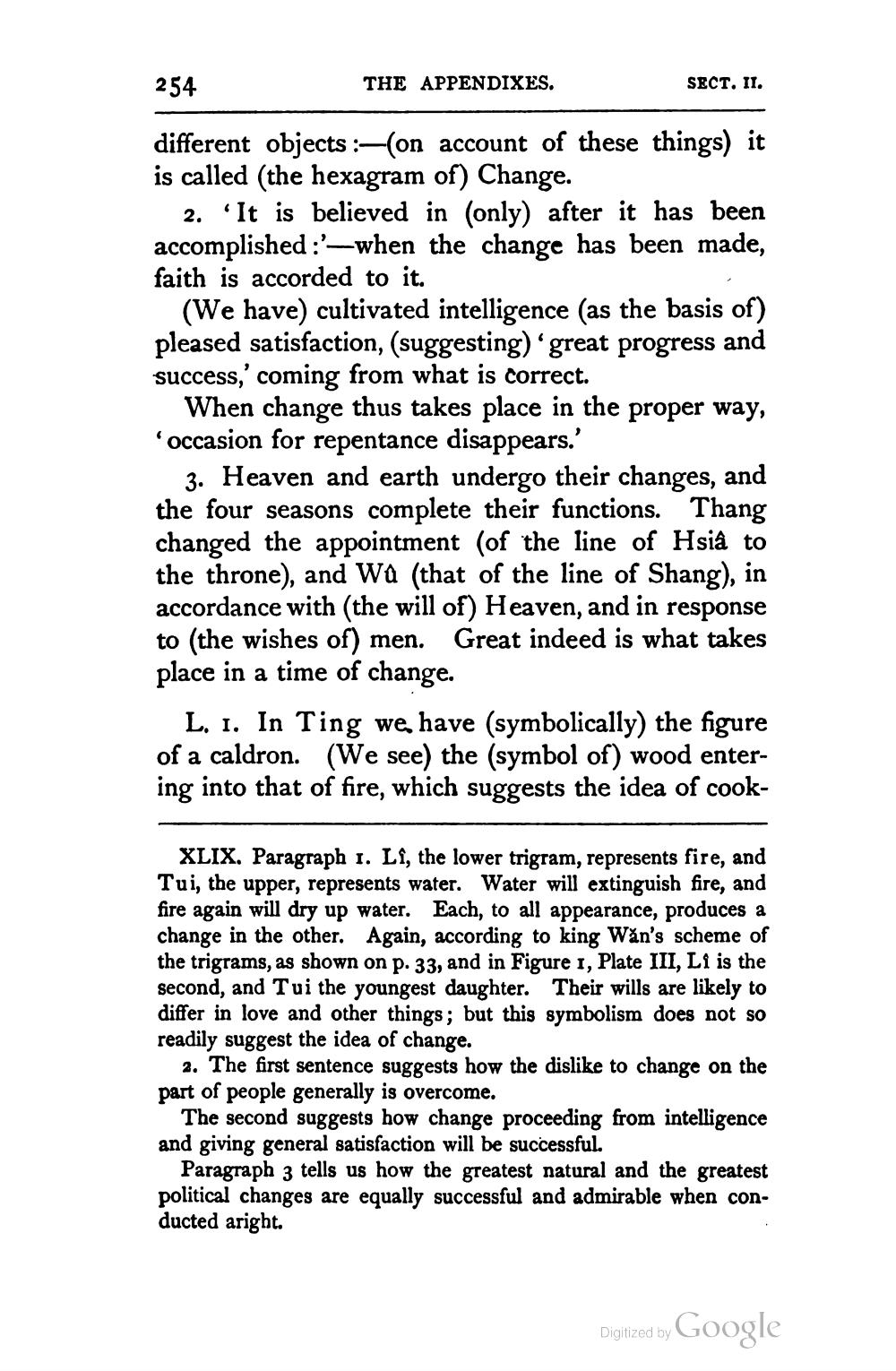________________
254
different objects:-(on account of these things) it is called (the hexagram of) Change.
THE APPENDIXES.
SECT. II.
2. 'It is believed in (only) after it has been accomplished:'-when the change has been made, faith is accorded to it.
(We have) cultivated intelligence (as the basis of) pleased satisfaction, (suggesting) 'great progress and success,' coming from what is correct.
When change thus takes place in the proper way, 'occasion for repentance disappears.'
3. Heaven and earth undergo their changes, and the four seasons complete their functions. Thang changed the appointment (of the line of Hsiâ to the throne), and Wû (that of the line of Shang), in accordance with (the will of) Heaven, and in response to (the wishes of) men. Great indeed is what takes place in a time of change.
L. I. In Ting we have (symbolically) the figure of a caldron. (We see) the (symbol of) wood entering into that of fire, which suggests the idea of cook
XLIX. Paragraph 1. Lî, the lower trigram, represents fire, and Tui, the upper, represents water. Water will extinguish fire, and fire again will dry up water. Each, to all appearance, produces a change in the other. Again, according to king Wăn's scheme of the trigrams, as shown on p. 33, and in Figure 1, Plate III, Li is the second, and Tui the youngest daughter. Their wills are likely to differ in love and other things; but this symbolism does not so readily suggest the idea of change.
2. The first sentence suggests how the dislike to change on the part of people generally is overcome.
The second suggests how change proceeding from intelligence and giving general satisfaction will be successful.
Paragraph 3 tells us how the greatest natural and the greatest political changes are equally successful and admirable when conducted aright.
Digitized by
Google




